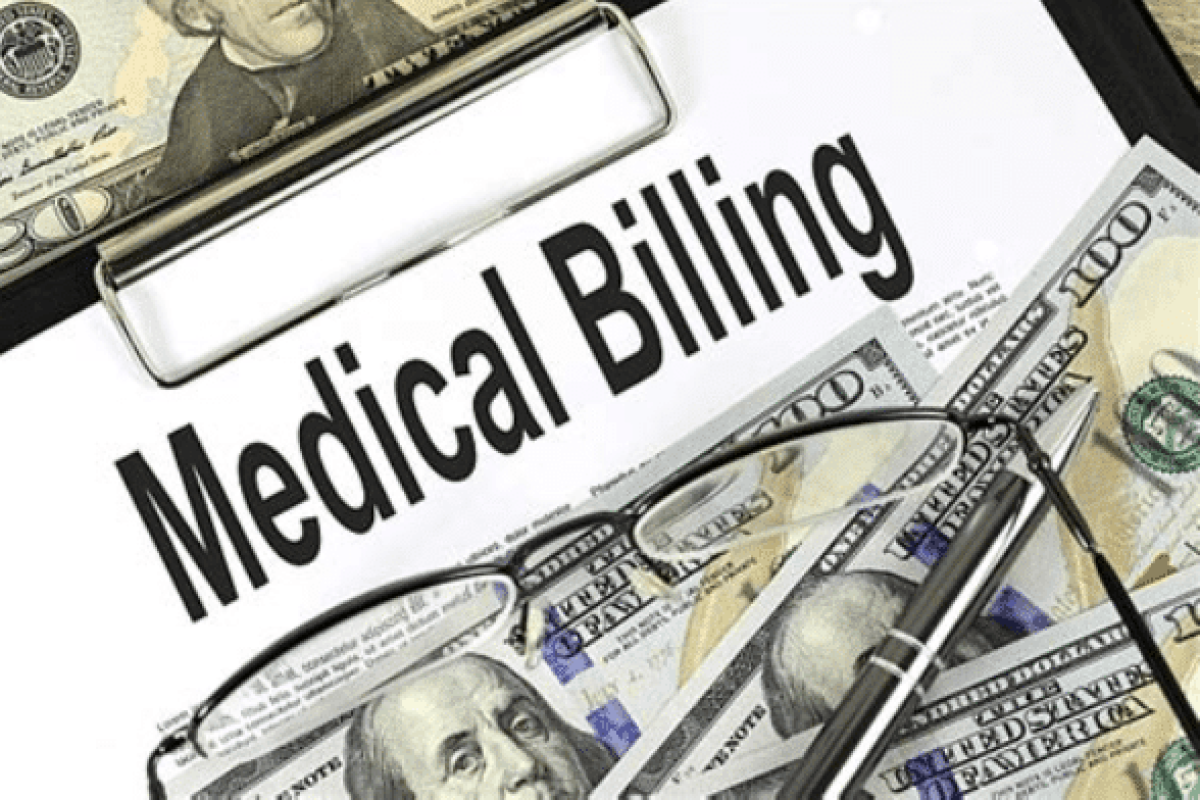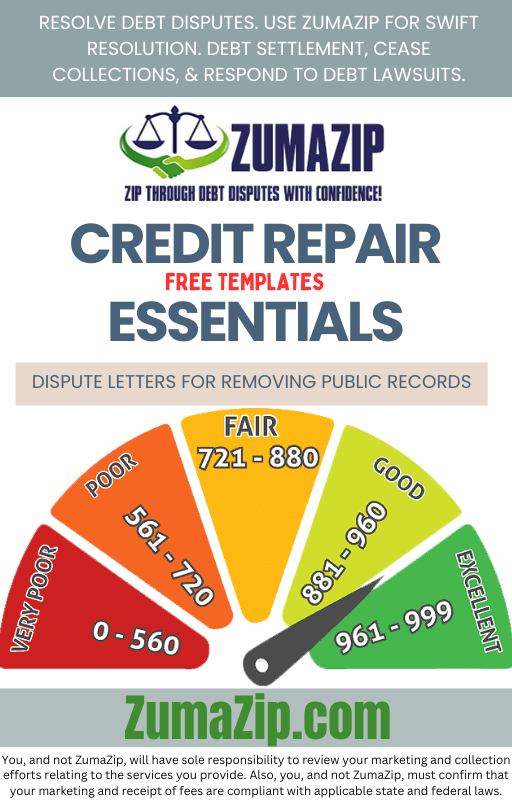You may be responsible for your spouse’s medical debt if you live in a community property state. ZumaZip.com has FREE Resources & DIY Help. Luckily, you can settle medical debt for less with the help of ZumaZip.
Your marriage vows included a promise to last through sickness and good health. But are you responsible for your spouse’s medical debt?
Generally, you are not responsible for the debts of your spouse, nor are you liable for their debts from before your marriage. Despite this being a general rule, when it comes to medical debts, sometimes state laws may require you to pay your spouse’s medical debt. Today, we will discuss when this situation occurs and answer questions such as, is a wife responsible for the husband’s medical bills?
Let’s get to it.
When are you responsible for your spouse’s medical debt?
If you live in a community property state, you are responsible for your spouse’s medical debt incurred during the marriage. Community property states have a law which says that when two people get married, they become one unit—from a financial standpoint. This law means that any debt your spouse owes is also owed by you.
The following nine states are considered community property states:
- Arizona
- California
- Idaho
- Louisiana
- Nevada
- New Mexico
- Texas
- Washington
- Wisconsin
There are exceptions to the shared-medical debt rule from these states. They include medical debt incurred:
- Before you married your spouse, unless you signed a document agreeing to take responsibility.
- From a prior marriage.
- After you were permanently separated or divorced.
- During your marriage and your spouse failed to disclose to the medical institution that they were married.
Another reason you may be responsible is if you have signed a document that claims responsibility for medical payments. This situation often occurs if your spouse is admitted and requires a co-signer.
If you become a co-signer, you are responsible for the bills if your spouse does not pay them. This law applies in all states.
Let’s consider an example.
Example: Before Alison married Greg, she had a medical debt for a minor surgery she underwent to treat a skin condition that cost $900. After they married, she continued using medication to enable a complete recovery. One year into the marriage, Alison lost her job and couldn’t pay the medical bills, which had accrued to $1,200. Greg was sued by Aargon debt collection agency, asking him to pay his wife’s debt according to Wisconsin community property state law. The lawsuit said he owed $2,100 because they had included Alison’s prior surgery. In his Answer document, Greg argued that he wasn’t responsible for the $900 debt since Alison incurred it before they got married. After receiving his response, Aargon agency was reluctant to continue in court because they had attempted to collect a debt that Greg wasn’t responsible for. They worked on a favorable settlement deal with Greg.
Make the right defense against debt collectors with ZumaZip.com.
Don’t turn your medical debt into credit card debt
Community debt is any debt you incur with your spouse while married, including any debt for which you are a co-signer with your spouse. Marriage brings all debts together, regardless of whose name it is under. This rule includes credit card debt and loans. So, converting your medical debt into credit card debt will not help the situation. .
Be prepared to pay your deceased spouse’s medical debt
Three debt-related questions spouses often ask that we are about to answer are:
- If your spouse dies, are you responsible for their medical bills?
- Am I responsible for my husband’s medical bills after his death?
- Am I responsible for my spouse’s medical debt after death?
The death of a spouse is not only financially stressful, but it can be emotionally stressful as well. Generally, a spouse is not responsible for the medical and credit card debt or loans of their deceased partner, unless they are mutually owned. After your spouse dies, their medical debt will go through the probate process, and the estate pays them off. If the money is insufficient, debt collection agencies such as Estate Information Services may come after you to pay the remaining debt.
Three reasons you may need to pay off your deceased spouse’s debt are:
- You own the debt together: If you cosign a loan or are listed as the joint owner on a credit card, then you are legally responsible for the debt.
- You live in a community property state: These laws state that any debt incurred during the marriage is transferred to the surviving spouse, even if they were only in the name of the deceased spouse.
- State law requires you to pay: Some debts are required by law to be paid by the spouse, including medical debt. Let’s look at the reason behind it.
Use ZumaZip to respond to debt collectors after a spouse dies.
Learn about the Doctrine of Necessaries
In most states, the Doctrine of Necessaries is another reason you are responsible for your spouse’s medical debt. The Doctrine of Necessaries Rule requires a person to take responsibility for their children’s, and sometimes spouse’s, necessities of life, including medical care.
The rule applies to various expenses, such as utilities, rent, food, clothing, and any other life necessities. Some states repealed the Doctrine of Necessaries, meaning that creditors cannot use it to collect a debt from a non-debtor spouse. States that have repealed the Doctrine of Necessaries include:
- Alabama
- Alaska
- Arkansas
- Florida
- Georgia
- Idaho
- Maryland
- Michigan
- Mississippi
- Utah
- Vermont
- Washington
If you live in the other states, ensure you read the law on your spouse’s medical debt to understand the requirement and how far a debt collector can pursue you for the debt.
Understand the history of the Doctrine of Necessaries
The original purpose of the doctrine was to support spouses and children to ensure access to the necessities of life. This included medical treatment and shelter. In modern times, this doctrine creates huge problems due to its gender-based bias.
In some cases, spouses have obtained a divorce to avoid the financial ruin that occurs with medical debt. What began as a law to protect the need for necessities has become outdated and controversial. Regardless, this does not help you when it comes to being sued for your spouse’s medical debt.
File a response with ZumaZip.com and avoid financial ruin.
Fight the Doctrine of Necessaries in court
In two states, there have been instances of fighting the Doctrine of Necessaries. These cases found the doctrine unconstitutional for two reasons:
- Being a violation of the Equal Protection Clause of the US Constitution.
- Being a violation of equal protection (stating that it creates a gender-based classification not related to serving governmental interests).
It may be challenging to win in a state where the Doctrine of Necessaries is operational. However, you can respond to the debt collectors and get a 30–50% medical debt reduction when you negotiate a debt settlement with the collector. Most debt collectors are willing to settle for less than the original amount owed.
Recap of medical debts during marriage
When you get married, you agree to stay with your spouse in sickness and health. Hence, if your spouse incurs medical debts during marriage, you will be liable for that debt. Even after separation, you can be taken to court and held responsible for your spouse’s debt.
In most states, you are liable for your spouse’s medical bills even if it is only their name appearing on the record. Lastly, you can be sued for a debt if you are a cosigner in all states.
Am I responsible for my spouse’s medical debt after death?
You are only responsible for your spouse’s medical debt after death if you live in a community property state, where you share responsibility for specific debts incurred during a marriage.
So, if you live in Arizona, California, Idaho, Louisiana, Nevada, New Mexico, Texas, Washington, or Wisconsin, you are most likely responsible for your spouse’s medical debt after death because these are all considered community property states.
Who is responsible for hospital bills after death?
When someone dies, their money and property (their estate) is used to pay their debts. A person called an executor, named in the will, or an administrator chosen by the court if there’s no will, handles this. They follow laws to decide which debts to pay first. If the estate doesn’t have enough money for all debts, usually no one else has to pay.
If you cosigned a loan with the deceased person, shared a credit card with them, are their spouse in community property states, or are their child who must pay specific debts by law, you might be responsible for hospital bills after death. If the debts are more than the estate’s value, some debts might go unpaid.
Here are some tips on negotiating medical bills after death
Negotiating medical bills after the death of a loved one can be a challenging and sensitive process. Here are some tips to help navigate this situation:
- Understand the Estate’s Responsibility: First, determine who is legally responsible for the debt. Generally, medical bills are paid out of the deceased’s estate. Unless you co-signed for the medical costs or are the spouse in a community property state, you are typically not personally responsible for these debts.
- Obtain a Copy of the Death Certificate: You will need several copies of the death certificate to send to creditors and medical providers to inform them of the death.
- Review the Medical Bills and Insurance Coverage: Examine all medical bills closely to ensure they are accurate. Check if any expenses were covered by health insurance, Medicare, or Medicaid. If insurance did not fully cover the costs, find out why.
- Request Itemized Statements: If anything seems unclear or incorrect, request an itemized statement from the healthcare provider. This will help you understand exactly what services were provided and their costs.
- Look for Billing Errors: Medical bills can contain errors. Scrutinize them for charges for services not received, duplicate charges, or incorrect patient information.
- Negotiate with Creditors and Providers: Reach out to healthcare providers and creditors to discuss the bills. Explain your situation and ask if they can reduce the charges or offer a payment plan. Sometimes, providers may offer a discount if the bill is settled in a lump sum.
- Seek Professional Advice: Consider consulting a probate attorney or a financial advisor experienced in handling estates. They can offer guidance on legal and financial responsibilities and may assist in negotiations.
- Utilize State or Charity Programs: Some states have programs to assist with unpaid medical bills. Additionally, some hospitals have charity care programs for bills that the deceased’s estate cannot cover.
- Keep Records of All Communications: Document all interactions with healthcare providers and creditors. Keep copies of bills, letters, emails, and notes of phone conversations.
- Be Patient and Persistent: Negotiating medical bills can be a lengthy process. Stay patient, and don’t hesitate to follow up regularly.
Remember, each situation is unique, and the rules can vary by state and by the healthcare provider. It’s important to approach this process with empathy, respect, and a clear understanding of your rights and obligations.
ZumaZip can help you deal with your spouse’s medical debt
The first step to deal with your spouse’s medical debt is to respond to your creditor when they first attempt to collect. Use our Debt Validation Letter, which requests them to verify the debt belongs to your spouse.
In situations where you cannot escape paying your spouse’s medical debt, negotiating a debt settlement, or slowly paying it off over time, is the most favorable action. If you have been sued, use our Answer to respond and improve your chances of receiving a fair judgment. Once you’ve filed your initial response, you can use ZumaZip Settle to start the negotiation process and reach a debt settlement out of court.
Explore ZumaZip’s documents today and let us help you with your spouse’s medical debt.
Learn how to respond to a medical debt lawsuit at ZumaZip.com
What is ZumaZip?
ZumaZip is a convenient solution designed to streamline your response to a debt collection lawsuit. Here’s a breakdown of what you can expect when you use ZumaZip:
Firstly, you’ll access our user-friendly web application, which guides you through the process step by step. You’ll be prompted to answer a series of questions related to your specific situation. Once you’ve completed the questionnaire, you have the option to either print out the finalized forms and mail them to the appropriate courts yourself, or you can opt to utilize ZumaZip’s services to file them on your behalf. Additionally, if you choose this option, an attorney will review your document for added peace of mind.
If you’re seeking guidance on how to effectively respond to a debt collection lawsuit, ZumaZip can provide the assistance you need. Feel free to explore our FAQs for more information on what ZumaZip has to offer.
What if I haven’t been sued yet?
If you’ve only received a collections notice, but not a lawsuit, the best way to respond is with a Debt Validation Letter. When a debt collector contacts you in any way, whether it’s by phone or mail, you can respond by formally requesting a debt validation with a Debt Validation Letter . This letter notifies the collector that you dispute the debt and forces them to provide proof you owe the debt. They can’t call you or continue collecting until they provide validation of the debt. This flowchart shows how you can use a Debt Validation Letter to win.
Get started with a Debt Validation Letter here.
How to Answer a Summons for debt collection in all 50 states
Here’s a list of guides on how to respond to a debt collection lawsuit in each state:
- Alabama
- Alaska
- Arizona
- Arkansas
- California
- Colorado
- Connecticut
- Delaware
- Florida
- Georgia
- Hawaii
- Idaho
- Illinois
- Indiana
- Iowa
- Kansas
- Kentucky
- Louisiana
- Maine
- Maryland
- Massachusetts
- Michigan
- Minnesota
- Mississippi
- Missouri
- Montana
- Nebraska
- Nevada
- New Hampshire
- New Jersey
- New Mexico
- New York
- North Carolina
- North Dakota
- Ohio
- Oklahoma
- Oregon
- Pennsylvania
- Rhode Island
- South Carolina
- South Dakota
- Tennessee
- Texas
- Utah
- Vermont; Vermont (Small Claims court)
- Virginia
- Washington
- West Virginia
- Wisconsin
- Wyoming
Guides on how to beat every debt collector
Hey there! Facing off against a debt collector can feel like a daunting challenge, but fear not! We’re here to help you navigate through it all with our handy guides designed to assist you in beating every debt collector you encounter. Whether you’re facing a new lawsuit or dealing with a persistent collector, we’ve got your back. Stay positive, stay informed, and let’s tackle this together!
- Absolute Resolutions Investments LLC
- Accredited Collection Services
- Alliance One
- Amcol Clmbia
- American Recovery Service
- Asset Acceptance LLC
- Asset Recovery Solutions
- Associated Credit Services
- Autovest LLC
- Cach LLC
- Cavalry SPV I LLC
- Cerastes LLC
- Colinfobur
- Covington Credit
- Crown Asset Management
- CTC Debt Collector
- Cypress Financial Recoveries
- Delanor Kemper & Associates
- Eagle Loan of Ohio
- Educap
- Estate Information Services
- FIA Card Services
- Forster & Garbus
- Freshview Solutions
- Fulton Friedman & Gullace LLP
- Harvest Credit Management
- Howard Lee Schiff
- Hudson & Keyse LLC
- Integras Capital Recovery LLC
- Javitch Block
- Jefferson Capital Systems LLC
- LVNV Funding
- Mannbracken
- Mariner Finance
- Medicredit
- Michael J Adams PC
- Michael J Scott
- Midland Funding LLC
- Mullooly, Jeffrey, Rooney & Flynn
- Mountain Land Collections
- MRS Associates
- National Collegiate Trust
- Nationstar Foreclosure
- Northstar Capital Acquisition
- NCEP LLC
- NRC Collection Agency
- OneMain Financial
- Palisades Collection LLC
- Pallida LLC
- Paragon Revenue Group
- Pinnacle Collections Agency
- PMAB LLC
- Portfolio Recovery Associates
- Provest Law
- PYOD LLC
- Reunion Student Loan Finance Corporation
- Revenue Group
- Regents and Associates
- RSIEH
- Salander Enterprises LLC
- Second Round Sub LLC
- Security Credit Services
- Sherman Financial Group
- Suttell and Hammer
- T-Mobile
- Transworld Systems
- Tulsa Teachers Credit Union
- UCB Collection
- Velo Law Office
- Velocity Investments
- Waypoint Resource Group
- Weinberg and Associates
- Wolpoff & Abramson
Settle your medical debt
Having a health challenge is stressful, but dealing medical debt on top of it is overwhelming. Here are some resources on how to manage medical debt.
- Am I Responsible for My Spouse’s Medical Debt?
- Do I Need a Lawyer for Medical Bills?
- Do I Need a Lawyer to Fight Medical Bill Debt?
- Does Bankruptcy Clear Medical Debt?
- How Much Do Collection Agencies Pay for Medical Debt?
- How to Find Medical Debt Forgiveness Programs
- Is There a Statute of Limitations on Medical Bills?
- Medical Debt Statute of Limitations by State
- Summoned to Court for Medical Bills — What Do I Do?
- Summoned to Court for Medical Bills? What to Do Next
Stop calls from Debt Collectors
Do you keep getting calls from an unknown number, only to realize that it’s a debt collector on the other line? If you’ve been called by any of the following numbers, chances are you have collectors coming after you, and we’ll tell you how to stop them.

























